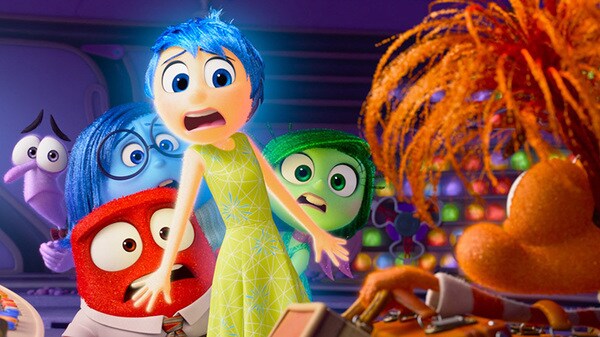The cinema and the crisis of romantic love: once upon a time… a happy ending
The “fables”
(whether classical or modern, told in books or in movies) have accustomed
us to seeing love as an indestructible force.
From the story of Snow White and the Seven Dwarfs to the film Ghost, from the legend of Tristan and Isolde to the
colossal Titanic, we find the same common thread: the worlds, the
contexts, the ages change, but the myth of romantic love is presented
almost exactly in the same way. In fact, in each of these stories (and we
could give yet many other examples) we find as protagonists a young,
courageous, thoughtful and protective young man and a good, honest,
sincere, fragile girl who needs to be sought after, looked after and
“saved.”
The love that is born between them, even if it has to go through numerous
obstacles, cannot be stopped by anyone: witches, scammers, evil potions,
natural calamities. Nothing can prevent the lovers from being together. On
the contrary, the more difficulties they face, the more solid the bond
becomes.
Perhaps not all endings provide the formula of a “happily ever after” (in
some cases, the hero of the romantic fairytale is even made to die for
love) but of course, love remains alive, because it is so powerful that it
goes beyond even the boundaries of death.
Some “modern fairy tales“, however , are saying “goodbye” to this paradigm.
In recent years, successful books or films have changed their perspective, sending a very different
message, that is “as much as a love can be great, engaging, and strong,
the realization of individual dreams must come before the life of a
couple.
Although a feeling can consume oneself and make existence more beautiful,
it must be subordinated to personal desires. Love is not and cannot become
a reason for living.”
We propose two films below as examples.
Me Before You
(USA, 2016, directed by Thea Sharrock)
Based on the book with the same name, the film presents Louisa Clark, a
twenty-six year old young girl who lives in a small town in the English
countryside and goes from one job to another to help her family, until she
finds herself an assistant to Will Traynor, a young rich banker limited to
a wheelchair, following an accident.
The man is cynical, cold, and arrogant; but when the girl begins to work
for him, the hard armor that he has built gives way to a hidden sensitivity
behind the pain caused by the tragic accident that has forever changed the
way he lives…Up until here, it’s nothing new: does it not seem possible to
mimic the dynamics of The Beauty and the Beast or, going back in
history, Jane Eyre?.
The girl, however, discovers that Will has made an agreement with his
parents, assenting to wait six months before finally making the decision to
go to a clinic in Switzerland to die.
Louisa then wants to prove to Will that his life can be beautiful and full
even in a wheelchair.
The two spend a time of renewed happiness together, but this is not enough
to change Will’s mind, which remains firm in his position: still feeling
too much lack of his life before the accident, opts for assisted suicide,
believing that the presence, no matter how wonderful, of the girl is not a
sufficient reason to stay. On the other hand, he declares his love to her
and leaves her many things to help her live “as she deserves,” happy and
fulfilled.
If love “isn’t enough”
A classic ending would have obviously included the reflection of the
protagonist. Yet these modern fables play on the disappointment of
expectations. The public, used to seeing that love grows, changes and even
decides to stay alive when everything around speaks of death must learn to
accept that the “I” comes before “us,” that the only true love to be
protected at any cost is the love for oneself.
At first, we might be messed up by finales like this, and yet, if we
reflect, we will have to admit that they are one of the many expressions of
a culture that tends to support more and more individualism and avoids the
“fusion” between man and woman as if it were a prison from freedom.
But is this finale in accordance with the deepest desires of the human
heart? Does it tell us the truth about who we are or what genuine happiness
is?
Beyond the fact that reading or seeing a similar story can be very much an
obstacle to those who are working to deal with a new condition of
disability and find reasons to appreciate a life that has become
undoubtedly more difficult, the message that this “fiction against the
current” can be harmful even for those who have lost their hopes in the
power of nuptial love.
Stories like these claim the lovers to drop the illusions, to open us to an
alleged realism (“It is stupid to believe that love solves everything”),
yet there is not just one way the protagonist could react: there are many,
many testimonies of people who through solidarity, closeness of loved ones,
the joy of creative and solar travel companions, and/or the dedication of a
faithful spouse, have found the joy of being in the world again after a
moment of sudden loss, although differently.
There is no doubt that there are many Wills, for whom health or beauty
comes first, but there are also many Leos (we refer to the protagonist of
the series Red Bracelets, on which you can read Red
Bracelets 3: the drama of pain, the fear of death and love for life
), which for love of life, of his girlfriend, of his friends, clings to a
chance of one in a hundred of healing and fight against his sickness to
stay with the people he loves.
La la land
(USA, 2016, directed by Damien Chazelle)
Different but still similar in some ways is the message conveyed by the
film La la land.
No illness, for the young protagonists of this story, which are instead
full of energy and dreams.
She, Mia, wants to become a successful actress and goes from one audition
to another, hoping to make her big break, sooner or later. He, Sebastian,
is a talented musician, who dreams of achieving success.
Winner of six Oscars, the musical, shows us two budding artists, who share
the desire to pursue their goals, however difficult to reach. Their shared
passion for art leads them to fall in love. The two are standing next to
each other, living in a sort of “enchanted world” close to a “fairytale
Hollywood,” the whole time that separates them from the set goals, until,
that success finally arrives. For her, who has spent years maintaining
herself as a bartender, the opportunity presents itself when she gets an
important part in a film that would lead her to work in France.
Sebastian, knowing how important the girl’s dream of becoming an actress
is, encourages her to go.
Tender and moving should be the moment when the two swear eternal love,
promising to find solutions to continue to be together, if it were not,
however, that the promise falls apart.
The film ends, showing a totally changed Mia: she’s become a successful
actress, and is married to another man and has a child.
Sebastian, on the other hand, opened a club (which bears the name Mia
suggested when they were together). There he plays music and has a huge
public following.
The two, who at the end cross each others paths right there in his club,
they exchange only a very sad look, full of nostalgia. In that look the
message of the film seems to be contained: “When two dreams become
irreconcilable, it is right, though painful, to follow different paths.”
If what’s missing is the commitment to be together
Also in this case, a happy ending would have provided for the
reconciliation between individual dreams and married life. After some time
had passed, the two could have found solutions to build a life together
without giving up what they loved (or maybe even without being unhappy).
Instead, it leaves the audience surprised by essentially saying: “In life
one cannot have everything, reality tells us that one must choose, and at
times it is more logical to choose what is best for oneself, rather than
for a hypothetical we.”
The
myth of romantic love would never allow a separation dictated by
individual interests:
yes, love could be hindered, but only by external factors, while the two
would fight to the end to defend the union. There is no trace here,
therefore, of a love to be protected at any cost.
Again, however, we should ask ourselves whether the film is honest and
consistent with what, deep down, we really want.
Does it really make us so happy to achieve success, so much so as to
renounce the fullness that comes from being loved? Are we really made to walk alone, to live out life alone?
Certainly the sadness of the protagonists at the end may give rise to the
doubt that it is not so, yet even in this case, a presumed realism seems to
prevail: “Life presents us with choices and love can not always have the
upper hand.”
An authentic realism, however, would have shown us that the problem of this
relationship is not simply the “cruelty of life,” but rather the lack of
commitment on the part of the protagonists to stay together.
Disappointing or comforting endings?
The films loyal to the classic fables define these disappointing finals,
while others, more “open to change” find them very positive: they would
have the gift of being woken up from the numbness of naivety. It would
allow us to open our eyes and would show us, with crude realism, how
different life is from what we expect.
Yet, perhaps, there is another possibility, that is that these finals are
“comforting.”
To love seriously is not a foregone conclusion; on the contrary, it is the
most beautiful thing in the world, but at the same time the most difficult
to thing to learn in life. Giving everything you have to another person,
giving up your selfishness, putting aside a little bit of oneself, for the
benefit of a “we” seems heroic. And maybe it is.
Heroes, though, are too far-removed from us (we are inconstant, full of
limits and fragility), while the protagonists of these modern tales seem
much more similar to us.
On the other hand, if love cannot overcome every obstacle in films, the
more difficult it will be for me to defend my own relationship at any cost,
in a life far less exciting than that of a film.
Without giving definitive judgments on the reasons of public acceptance of
these sorts of films (which have been no doubt successful), we would like
to pose a question here:
is it simply that in these finals, we find alibis to justify our
difficulty in loving?
Is it really that it encourages us, as we are not so easily persuaded to
give ourselves seriously to another at any cost, and rather we prefer to
invest in our individual goals instead of having to reason together as two?
We look forward to your comments!














